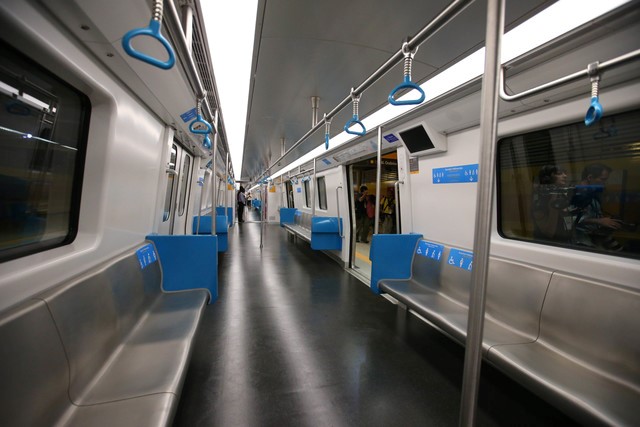By Pedro Fonseca
RIO DE JANEIRO (Reuters) - Workers in hard hats and coveralls were still working on Rio de Janeiro's newest subway line on Monday, two days after it was inaugurated by Brazilian leaders and four days before the start of the 2016 Olympics it was built to serve.
The 10-billion-real (2.35 billion pounds) Line 4, designed to be the main mover of people to and from the Olympic Park in Rio's distant Barra beachfront neighbourhood, was scheduled to be the biggest legacy project of an Olympics where many other urban improvement promises, such as cleaning up sewage or reducing air pollution, have not been met.
"We're still finishing up the project, which opened unfinished like all government projects," an electrician working on the station told Reuters.
The man, who declined to give a name because he was not authorised to speak to the press, was stringing wire at the Sao Conrado station, one of the most important on Line 4 because it will serve residents of the giant Rocinha shanty town.
The Rio Barra consortium, which built Line 4, said work on the line is 100 percent complete and that the workers do not work for them. Metro Rio, which operates the line, said the workers are only removing equipment still on site after completion.
Line 4 reduces travel times to about an hour between more central neighbourhoods, such as Copacabana, where many tourists are staying, and the Olympic Park in Barra, where much of the Games will take place. That's far shorter than bus travel times, especially during rush hour when the journey can take two hours or more.
But while officially open, the system remains closed to most Cariocas, as Rio de Janeiro residents are known.
Until the end of the Paralympics in September, the line will be open only to members of the "Olympic Family", or qualified athletes, support staff, Olympic workers and journalists with the appropriate credentials.
Fans with valid, same-day tickets for games or events such as the opening ceremony will be able to use it from Aug. 5.
After the Olympics and Paralympics, the line will close again temporarily for work on connections with another line. Full access is not expected until sometime during the last three months of 2016.
Work continues, mostly behind the scenes, such as in the service areas of stations, but there were at one stage serious concerns that the line would not open in time for the Olympics at all.
As a result, Rio de Janeiro Mayor Eduardo Paes had organised a "plan B", using fleets of buses in case the subway extension was not finished.
Costs, too, have been a problem -- Line 4 has cost double its initial budget.
